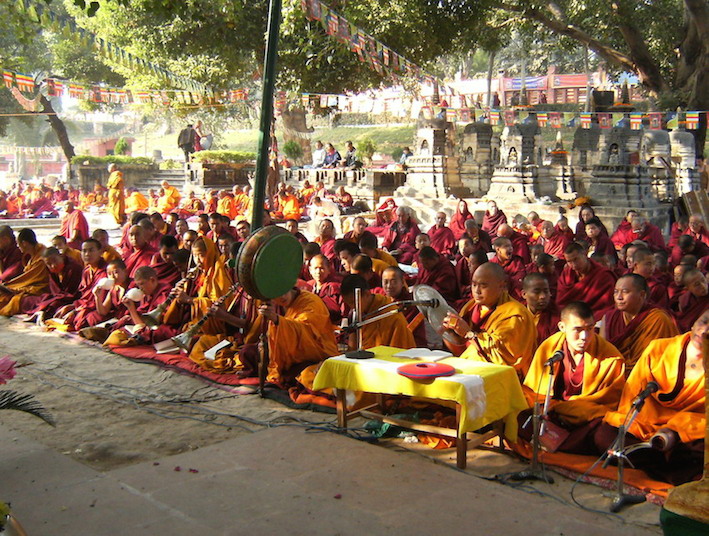Chinese authorities require Tibetan monks to undergo political training in state ideology, NGO Human Rights Watch (HRW) said in a report released on Wednesday. The US-based organisation said that the measure is designed to create religious propaganda teachers.
“Chinese authorities have always placed heavy constraints on religious freedom, especially in Tibetan and other minority regions,” said Sophie Richardson, China director at HRW. “Compelling Tibetan monks and nuns to be propagandists for the Communist Party takes government intrusion in religion to abhorrent new levels.”

Under a “Four Standards” government policy introduced to the Tibet Autonomous Region in 2018, religious figures must be competent in Buddhist studies, show “political reliability,” and have “moral integrity capable of impressing the public.”
HRW said that individuals with exceptional religious knowledge were selected for training, but were unlikely to have been given a choice about participating. They were then required to actively work as political educators under the condition that they stop any attempts to protest state policy.
‘Sinicizing religion’
According to state-run tabloid the Global Times, an unknown number of selected Tibetan monks and nuns attended a three-day training session from May 31 to June 2 “to strengthen their political beliefs” and prepare them to spread the ideology of the central government in their own monasteries and communities. A political training course for 250 Tibetan religious figures was also reportedly held in 2016.

Xiong Kunxin, a professor at Minzu University of China in Beijing, told the tabloid that recruiting monastics to promote the Chinese Communist party was more effective because “they have a better understanding of the thoughts and habits of their own group.”
HRW said that the recruitment implies that previous attempts at political indoctrination in monasteries by Party cadres had been insufficient and an absence of credible Tibetan religious figures promoting state ideology had been a long-term problem for the government. The move is part of a national-level policy of “sinicising religion,” approved of during President Xi Jinping’s first term of his presidency.

“Doctrinal reformulation is now being applied to all organised religions in China, but the political imperative is strongest in the Tibetan and Xinjiang Uighur Autonomous Regions, where the Party considers religious identity a threat to national integration,” the NGO said.
‘Correct’ religious thinking
According to HRW, the Communist Party has spent years trying to “correct” the thinking of Tibetan religious figures through political re-education led by party officials. These training sessions, carried out over 15 years, require all monks and nuns to denounce the exiled Tibetan spiritual leader, the Dalai Lama or face expulsion from their communities.
In 1988, Chinese authorities banned a monastic program to train Tibetan monks for the Geshe degree – the highest academic qualification in Tibetan Buddhism. Earlier this year, a state-run academic programe for the Geshe degree was introduced by the Chinese Buddhist Association, which tests pupils on Chinese “politics, law and history.”

Richardson added that the measure reflects the government’s tightening grip on religious freedom: “Authorities’ injection of political dogma into religious curriculum and new requirements that monastics indoctrinate one another reflect Beijing’s hostility to the freedom of religious belief,” she said.
China incorporated Tibet into the mainland in 1950 following the Chinese Civil War, and has been accused of trying to eradicate its Buddhist-based culture through political and religious repression. In February, the central government criminalised expressions of support for increased autonomy in Tibet for the first time.
